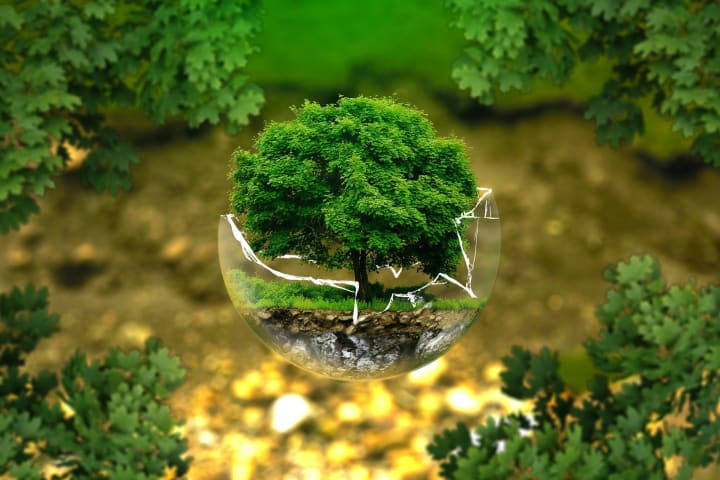6 Ways You Might Be Harming The Environment: And How To Stop!
Every day, you could be hurting the planet without even knowing it. Here's how to help it instead.

Did you know that many people who are harming the environment don’t even realise they are doing it?
Environmental damage isn’t only caused on a vast scale by large corporations, harmful emissions, or global pollution. It is also caused in small but significant ways right in our homes or workplaces.
However, by knowing the subtle ways you might be harming the environment on a daily basis, you can instead make changes to help it. With some small but mindful adjustments, you can transform your daily routine, home, and workspace in environmentally-friendly ways.
With the simple but effective tips below, you can start to make a positive change and live a greener life!
1. Avoid Unnecessary Travel
Travel can be a major contributor to pollution and toxic emissions. Many of us have reduced our holidays abroad for this reason, or explored more environmentally-friendly ways of travelling — but our daily commute may also be causing harm.
We all have to work and find ways of travelling to work in the most efficient and cost-effective manner, but this doesn’t have to be at the expense of the environment.
Why not explore whether it is possible to walk or cycle to your workplace, even just once or twice a week? This is not only great for the environment, but good for your cardiovascular health too.
Where this is not possible, why not explore carpooling, greener public transport, or even switching to an electric vehicle!
For those who are seriously concerned about their carbon footprint, you could also explore the possibility of working remotely. This is environmentally-friendly, but can also be more cost-effective as it significantly reduces your travel bill.
Do whatever suits your wishes and circumstances best, and you will still be helping the environment.
2. Use Natural Products
Many of us have no idea that even the cleaning products we use around the home can have a seriously adverse effect on the environment. They may contain harmful plastic particles called microbeads, or toxic substances that cause harm to marine life when they enter the water supply.
Switching to more natural brands can have a highly beneficial effect. It is also safer for those who suffer from allergies, respiratory conditions, or skin complaints too.
There is now a wide range of natural and recycled cleaning products available in a variety of scents and styles, so it’s easy to pick one that suits you!

3. Purchase Second-Hand Goods
There are times when purchasing brand new may be our only option. But when we have the choice, we could also consider purchasing second-hand or recycled products. This can be highly cost-effective, and does not have to be a reflection of the quality of the product.
Many 'second-hand' items are essentially brand new, but have simply been returned as an unwanted gift, or a duplicate. Be sure to check any guarantees or warranties, and only ever purchase from reputable retailers.
Second-hand items can be a great way to achieve the same results from an item at a fraction of the cost.
4. Stop Wasting Food!
Food waste is one of the biggest culprits in harmful emissions. Studies show that as much as one-third of all food produced ends up in landfill!
We can stop contributing to this by planning our meals effectively, making use of leftovers, and also by composting at home rather than throwing out spoiled food. This is not only better for the planet — it’s better for your budget too!
5. Stop Wasting Energy!
You may not realise that you are wasting energy such as gas and electricity, but a simple change such as switching things off when they’re not in use can make a big difference to your energy usage. You could also investigate more energy-efficient bulbs, for example, as well as making sure that your home is well insulated.
And don’t forget that leaving electronics on stand-by, or charging them even after their batteries are full, can waste a significant amount of energy. Getting in the habit of turning things off is better for you, your budget, and the environment!
6. Stop Wasting Water!
Water is one of the planet’s most precious resources, yet it is remarkable how much we can waste without realising it. Treat water as a precious resource by turning off the tap when it doesn’t need to be on (such as while brushing teeth, for example) and swap baths for showers.
With simple but significant changes like these, you can stop many of the small ways you might be harming the environment, and replace them with helpful habits instead!
About the Creator
Alexander Belsey
B2B magazine editor and digital marketer. I write about business, politics, economics, and wellbeing - sometimes all at once.






Comments
There are no comments for this story
Be the first to respond and start the conversation.